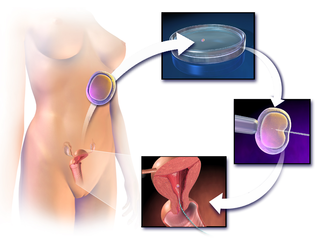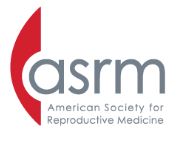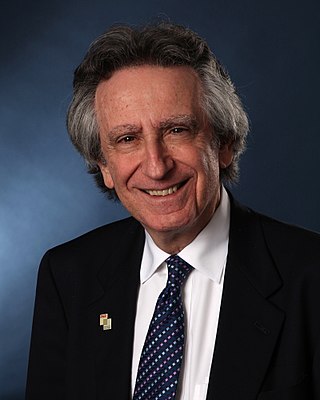
The Human Fertilisation and Embryology Authority (HFEA) is an executive non-departmental public body of the Department of Health and Social Care in the United Kingdom. It is a statutory body that regulates and inspects all clinics in the United Kingdom providing in vitro fertilisation (IVF), artificial insemination and the storage of human eggs, sperm or embryos. It also regulates human embryo research.

Assisted reproductive technology (ART) includes medical procedures used primarily to address infertility. This subject involves procedures such as in vitro fertilization (IVF), intracytoplasmic sperm injection (ICSI), cryopreservation of gametes or embryos, and/or the use of fertility medication. When used to address infertility, ART may also be referred to as fertility treatment. ART mainly belongs to the field of reproductive endocrinology and infertility. Some forms of ART may be used with regard to fertile couples for genetic purpose. ART may also be used in surrogacy arrangements, although not all surrogacy arrangements involve ART. The existence of sterility will not always require ART to be the first option to consider, as there are occasions when its cause is a mild disorder that can be solved with more conventional treatments or with behaviors based on promoting health and reproductive habits.

Ryuzo Yanagimachi was a Japanese-born, American-based scientist. He made numerous key contributions to the study of mammalian fertilization, and he was also a pioneer in the cloning field. Accordingly, he assisted in fertilization technologies such as in vitro fertilization and direct sperm injection into the egg, which are widely used today in human infertility clinics throughout the world. In 1997, his laboratory at the University of Hawaiʻi at Mānoa successfully cloned mice using the Honolulu technique.

The American Society for Reproductive Medicine (ASRM) is a nonprofit, multidisciplinary organization for advancement of the science and practice of reproductive medicine. The society has its headquarters in Washington, D.C and its administrative office in Birmingham, Alabama.

Reproductive medicine is a branch of medicine concerning the male and female reproductive systems. It encompasses a variety of reproductive conditions, their prevention and assessment, as well as their subsequent treatment and prognosis.

The Human Fertilisation and Embryology Act 1990 is an Act of the Parliament of the United Kingdom. It created the Human Fertilisation and Embryology Authority which is in charge of human embryo research, along with monitoring and licensing fertility clinics in the United Kingdom.
Reproductive endocrinology and infertility (REI) is a surgical subspecialty of obstetrics and gynecology that trains physicians in reproductive medicine addressing hormonal functioning as it pertains to reproduction as well as the issue of infertility. While most REI specialists primarily focus on the treatment of infertility, reproductive endocrinologists are trained to also test and treat hormonal dysfunctions in females and males outside infertility. Reproductive endocrinologists have specialty training (residency) in obstetrics and gynecology (ob-gyn) before they undergo sub-specialty training (fellowship) in REI.
Carlos Sueldo is a physician and professor of obstetrics and gynaecology (OB/GYN) for the University of California, San Francisco. Dr. Sueldo is also the founder (1984) and present Director of the in vitro fertilization IVF Fertility Center. Dr. Sueldo concurrently serves as the Scientific Director at the Center for Gynecology and Reproduction (CEGYR) in Buenos Aires, Argentina, and is a founding board member of the World Endometriosis Research Foundation.
Stem cell laws are the law rules, and policy governance concerning the sources, research, and uses in treatment of stem cells in humans. These laws have been the source of much controversy and vary significantly by country. In the European Union, stem cell research using the human embryo is permitted in Sweden, Spain, Finland, Belgium, Greece, Britain, Denmark and the Netherlands; however, it is illegal in Germany, Austria, Ireland, Italy, and Portugal. The issue has similarly divided the United States, with several states enforcing a complete ban and others giving support. Elsewhere, Japan, India, Iran, Israel, South Korea, China, and Australia are supportive. However, New Zealand, most of Africa, and most of South America are restrictive.
Ali Said Faqi is a Somali scientist specializing in toxicology and a diplomat. A leading researcher in his field, he has numerous scientific papers and also authored a book entitled A Comprehensive Guide to Toxicology in Preclinical Drug Development. In 2013, he was appointed as the Somali Ambassador to Benelux and European Union.
Mitochondrial replacement therapy (MRT), sometimes called mitochondrial donation, is the replacement of mitochondria in one or more cells to prevent or ameliorate disease. MRT originated as a special form of in vitro fertilisation in which some or all of the future baby's mitochondrial DNA (mtDNA) comes from a third party. This technique is used in cases when mothers carry genes for mitochondrial diseases. The therapy is approved for use in the United Kingdom. A second application is to use autologous mitochondria to replace mitochondria in damaged tissue to restore the tissue to a functional state. This has been used in clinical research in the United States to treat cardiac-compromised newborns.

Human Reproduction is a peer-reviewed scientific journal covering all aspects of human reproduction, including reproductive physiology and pathology, endocrinology, andrology, gonad function, gametogenesis, fertilization, embryo development, implantation, pregnancy, genetics, preimplantation genetic diagnosis, oncology, infectious disease, surgery, contraception, infertility treatment, psychology, ethics, and social issues. It is an official journal of the European Society of Human Reproduction and Embryology. It was established in 1986 with Robert Edwards as founding editor-in-chief.

Ashok Agarwal is the Director of the Andrology Center, and also the Director of Research at the American Center for Reproductive Medicine at Cleveland Clinic, Cleveland, USA. He is Professor at the Cleveland Clinic Lerner College of Medicine of Case Western Reserve University, USA. Ashok is a Senior Staff in the Cleveland Clinic's Glickman Urological and Kidney Institute. He has published extensive translational research in human infertility and assisted reproduction.

Brian Dale is a British reproductive scientist living in Sorrento, Italy. He is currently owner and Director of the Centre for Assisted Fertilization, which has offices in Naples and Rome and Director of London Fertility Associates Ltd in London. He is also founder and partner in the Swiss-based company, International Fertility Associates.
Simon Fishel is an English physiologist, biochemist and pioneering in vitro fertilisation (IVF) specialist.

Andres Salumets is an Estonian biologist, biochemist, and international infertility expert. He currently is Professor of Reproductive Medicine at the Karolinska Institute.

Eli Y. Adashi is an American physician-scientist-executive who served as the Fifth Dean of Medicine and Biological Sciences at Brown University. Adashi is presently a tenured Professor of Medical Science with the Warren Alpert Medical School of Brown University. He is a member of the National Academy of Medicine, the New York Academy of Sciences, and the Association of American Physicians (AAP). Adashi is also a fellow of the American Association for the Advancement of Science (AAAS), the Hastings Center Ethics Research Institute, and the Royal Society of Medicine.
Joyce Harper is Professor of Reproductive Science at the Institute for Women's Health, University College London where she heads the Reproductive Science and Society group. She is director of the Embryology and PGD Academy and Global Women Connected.
Alexander M. Feskov is a Ukrainian physician, reproductive scientist, and ultrasonographer who specialises in reproductive technology and fertility treatment.
Dmitri Dozortsev is a Russian-American physician scientist, inventor and researcher. Dozortsev's contributions in research and publications are mostly in the areas of human reproductive medicine and biology. In particular, he is best known for his studies of in vitro fertilisation and embryo transfer. Dozortsev currently serves as President of the American College of Embryology and as Director of Omni-Med laboratories.










